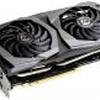That there have been some massive changes and shifts in GPU sales should not come as a surprise as the mining segment pretty much collapsed, and newer model graphics cards have become too expensive for the majority of people. The research was conducted by Jon Peddie Research. In their latest report, they show some interesting figures.
The numbers for the fourth quarter of 2018 overall show that the GPU sales fell by 2.65 percent compared to the previous quarter, AMD's sales where down 6.81 percent, Nvidia with 7.62 percent and Intel's 0.67 percent.
Compared to the previous quarter, Intel went with market share of both AMD and Nvidia, the latter two had a decrease of 0.6 and 0.82 percent respectively. On an annual basis, gpu sales fell by 3.3 percent, the video card market had a decrease of 20 percent.
According to JPR, the reason for this large decline lies in the large surplus of cards at the start of 2018, while demand fell sharply as a result of the collapse of the crypto market, which was also cited in the report for the third quarter. According to the company, this decline would continue in the first and second quarters of this year.
The PC GPU market decreased year-to-year by (3.3)%, sequentially GPU shipments decreased (2.6)%
Jon Peddie Research, the market research firm for the computer graphics industry, has released its quarterly Market Watch report on world-wide GPU shipments used in PCs for Q4'18. Overall GPU shipments decreased -2.65% from last quarter, AMD shipments decreased -6.8% Nvidia decreased -7.6% and Intel's shipments, decreased -0.7%.
AMD's market share from last quarter decreased -0.6%, Intel's increased 1.4%, and Nvidia's market share decreased -0.82%. Year-to-year total GPU shipments decreased -3.3%, desktop graphics decreased -20%, notebooks increased 8%. Although overall GPU shipments declined PC sales saw an uptick of 1.61% which is a positive sign for the market overall.
"The channel's demand for add-in boards (AIBs) in early 2018 was out of sync with what was happening in the market," said Dr. Jon Peddie, president and founder of Jon Peddie Research. "As a result the channel was burdened with too much inventory. That has impacted sales of discrete GPUs in Q4, and will likely be evident in Q1, and Q2'19 as well."
The fourth quarter is typically flat to up from the previous quarter in the seasonal cycles of the past. For Q4'18 it decreased -2.7% from last quarter and was below the ten-year average of an 11.59% increase.
Quick highlights
- AMD's overall unit shipments decreased -6.81% quarter-to-quarter, Intel's total shipments decreased -0.67% from last quarter, and Nvidia's decreased -7.62%.
- The attach rate of GPUs (including integrated and discrete GPUs) to PCs for the quarter was 135% which was down -5.92% from last quarter.
- Discrete GPUs were in 27.78% of PCs, which is down -3.83% from last quarter.
- The overall PC market increased by 1.61% quarter-to-quarter, and decreased -3.79% year-to-year.
- Desktop graphics add-in boards (AIBs) that use discrete GPUs decreased -10.75% from last quarter.
- Q4'18 saw a no change in tablet shipments from last quarter.
GPUs are traditionally a leading indicator of the market, since a GPU goes into every system before it is shipped, and most of the PC vendors are guiding cautiously for next quarter.
For those who wish to understand the PC market, an understanding of the highly complex technology and ecosystem that has been built around the GPU is essential to understanding the market's future directions.
GPUs are traditionally a leading indicator of the market, since a GPU goes into every system before it is shipped, and most of the PC vendors are guiding cautiously for next quarter.
For those who wish to understand the PC market, an understanding of the highly complex technology and ecosystem that has been built around the GPU is essential to understanding the market's future directions.
Video card sales again dropped compared to last year

